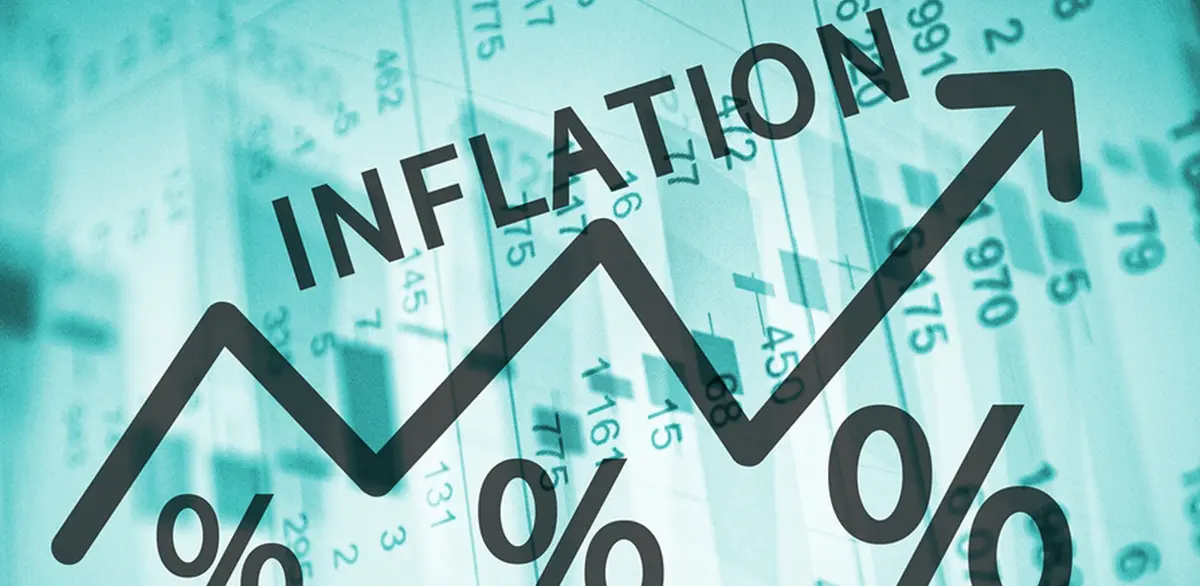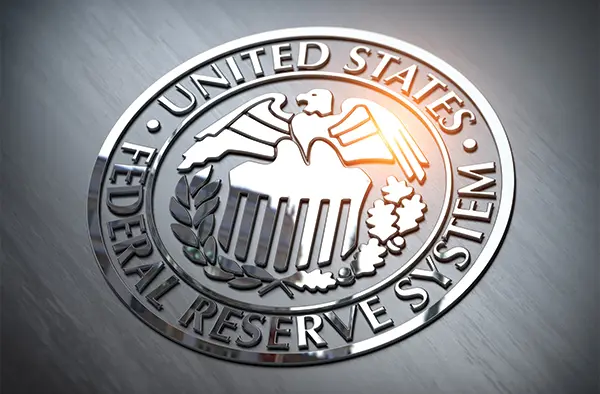An exploration of the impact of U.S. economic policies on investment strategies and trends

January 29, 2025
The U.S. economy is constantly evolving, influenced by changes in economic policies that shape everything from interest rates to trade regulations. These policies not only affect the national economy but also directly impact individual investors, businesses, and financial markets. With new economic policies in place or being proposed, understanding how these shifts influence investment trends is essential for making informed investment decisions in and beyond.
Key U.S. Economic Policies Affecting Investments1. Federal Reserve Policies and Interest Rates
The Federal Reserve’s monetary policies are some of the most influential drivers of market trends. By adjusting interest rates, the Fed can either encourage or slow down economic growth. Lower interest rates typically make borrowing cheaper, which boosts consumer spending and business investment, but it can also lead to inflationary pressures. Higher rates, on the other hand, tend to cool down an overheating economy but can have a negative effect on stock prices and corporate profits.
For investors, understanding the Fed’s interest rate policies is key to anticipating changes in bond yields, stock market movements, and sector performance. Sectors like real estate, utilities, and technology are particularly sensitive to changes in interest rates.
2. Fiscal Stimulus and Government Spending
In times of economic downturn or uncertainty, fiscal stimulus programs are often enacted by the government to inject money into the economy and boost growth. These policies can include direct payments to individuals, tax cuts for businesses, or increased government spending on infrastructure projects.
For investors, these policies can create opportunities in sectors that directly benefit from increased government spending, such as construction, renewable energy, and healthcare. Understanding where fiscal stimulus is targeted can help investors identify industries that may outperform in a given economic climate.
3. Tax Policy Changes
Changes in tax policy can have a significant impact on investment behavior. Corporate tax rates, for instance, influence businesses’ profitability and their ability to reinvest in growth. A reduction in corporate taxes may encourage more corporate spending, which could result in higher stock prices. On the other hand, capital gains taxes can impact investment returns, influencing individuals’ decisions to sell assets.
As tax reforms continue to evolve, investors should stay aware of potential changes in the tax code that could affect the tax treatment of income, dividends, and capital gains.
4. Trade Policies and Global Trade Dynamics
U.S. trade policies, including tariffs, import-export restrictions, and trade agreements, can significantly alter the landscape for investors. Policies that favor free trade tend to encourage global investment and improve the performance of multinational corporations, while protectionist policies may make foreign markets more challenging for U.S. investors to navigate.
Shifts in trade dynamics can lead to volatility in commodity prices, especially for industries reliant on imported raw materials, such as manufacturing and technology. Investors should be mindful of these trade policy changes to evaluate risks and rewards for certain asset classes.
5. Labor Market and Employment Policies
Employment-related policies, such as minimum wage laws, labor union regulations, and unemployment benefits, affect the labor market’s stability and consumer spending power. A robust labor market can fuel economic growth and create a positive environment for investors, especially in consumer-driven sectors like retail and automotive.
Conversely, stricter labor laws or reduced employment opportunities could impact corporate earnings, especially in labor-intensive industries. Investors must track labor market trends and anticipate how new policies may influence economic conditions and market performance.
How U.S. Economic Policies Influence Investment Trends1. Shift Toward Technology and Innovation
As economic policies continue to emphasize innovation and technology-driven growth, there has been a marked shift in investment trends towards the technology sector. With growing investments in artificial intelligence (AI), automation, and green technologies, investors are flocking to these high-growth industries. Government incentives, such as research and development (R&D) tax credits and subsidies for green energy projects, have made technology stocks particularly attractive to investors.
This trend is likely to continue as the U.S. government focuses on fostering innovation to maintain global competitiveness. Investors are increasingly focusing on startups and venture capital opportunities in sectors like FinTech, health tech, and clean tech, which benefit from supportive economic policies.
2. Increased Focus on ESG Investing
Environmental, Social, and Governance (ESG) investing has been a major trend reshaped by both government regulations and public opinion. As policymakers introduce new regulations aimed at promoting sustainable business practices, investors are increasingly looking to support companies that are aligned with environmental sustainability, social responsibility, and strong corporate governance.
The U.S. government's push for green energy and carbon reduction goals has led to increased capital inflows into clean energy companies, electric vehicles (EVs), and sustainable agriculture. As more investors align their portfolios with ESG principles, these policies are reshaping market trends and creating new opportunities.
3. Real Estate Investment Opportunities
Government policies in housing, particularly the tax incentives for homebuyers and mortgage interest deductions, can influence the performance of the real estate market. Moreover, urban renewal programs and incentives for affordable housing development can provide new avenues for real estate investment trusts (REITs) and property developers.
Shifting interest rates and fiscal stimulus can also impact housing demand. Lower rates tend to make real estate more attractive, while higher rates may dampen housing affordability, leading investors to pivot their strategies.
4. Rising Popularity of Alternative Investments
As U.S. economic policies continue to evolve, alternative investments such as private equity, cryptocurrency, and commodities have seen increased interest. Many investors are diversifying into these non-traditional assets as a hedge against market volatility and economic uncertainty.
The government’s evolving stance on cryptocurrency regulation and commodities trading will likely continue to shape investment strategies, with policies providing clearer guidelines and protections for investors in these markets.
Investment Strategies Amid Economic Policy ShiftsTo navigate the changing landscape of U.S. economic policies, investors should focus on strategies that are adaptable to shifting regulations. Key strategies include:

The role of U.S. investment policies in ensuring financial security and market resilience
U.S. investment policies play a crucial role in shaping financial stability by influencing capital markets, interest rates, and economic growth. Regulatory frameworks and government interventions determine risk levels, investor confidence, and long-term economic sustainability

Understanding the impact of interest rate changes on investment decision-making
Interest rate changes have a significant influence on investment strategies. Whether through the stock market, bonds, or real estate, shifts in rates affect asset prices, investor behavior, and portfolio diversification. Understanding these dynamics is essential for making informed, profitable investment decisions

Understanding how inflation trends influence U.S. investment strategies
Inflation trends play a critical role in shaping U.S. investment policies. From adjusting interest rates to influencing asset classes like bonds, equities, and real estate, inflation trends affect economic decisions across the country. Investors must stay informed about inflation to navigate investment policies effectively and protect their portfolios

Exploring the impact of government spending on market trends and investor behavior
Government spending plays a pivotal role in shaping investment markets. From fiscal stimulus packages to infrastructure investments, the allocation of government funds can drive market movements and influence investor sentiment. This article delves into the ways government spending impacts various sectors and markets, offering insights for investors

An in-depth look at the changes to capital gains tax laws and what investors should expect in 2025
As 2025 approaches, changes in capital gains tax laws could impact investment strategies for individuals and institutions. This article explores the key updates to tax policies and offers insights into how these changes may affect your investment portfolio

Understanding how Federal Reserve decisions impact investment trends and economic stability
The Federal Reserve plays a crucial role in shaping investment growth by adjusting interest rates, regulating money supply, and influencing market liquidity. Its policies determine the cost of borrowing, stock market trends, and overall economic expansion, making it a key driver in investment decision-making

An exploration of the impact of U.S. economic policies on investment strategies and trends
With shifting U.S. economic policies, investors are adjusting their strategies to respond to new market dynamics. This article explores the key policy changes and their influence on investment decisions

Understanding how tax policies shape investment strategies and financial growth
Tax regulations play a crucial role in determining investment returns by affecting capital gains, dividends, and corporate profits. Changes in tax laws influence investor behavior, asset allocation, and long-term financial planning, making it essential to stay informed about evolving policies

Learn how U.S. monetary policies influence investment decisions and market trends
U.S. monetary policies, driven by the Federal Reserve, play a significant role in shaping investment opportunities. Understanding interest rates, inflation control, and liquidity measures helps investors make informed decisions and optimize portfolio returns in varying economic climates
The Atlantic Daily
Get our guide to the day’s biggest news and ideas, delivered to your inbox every weekday and Sunday mornings. See more newsletters
.webp)
Ideas That Matter
Subscribe and support more than 160 years of independent journalism.
Subscribe